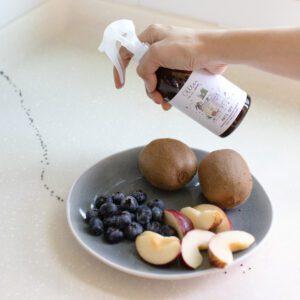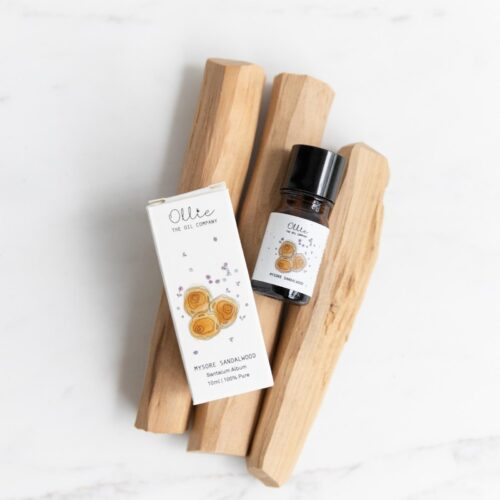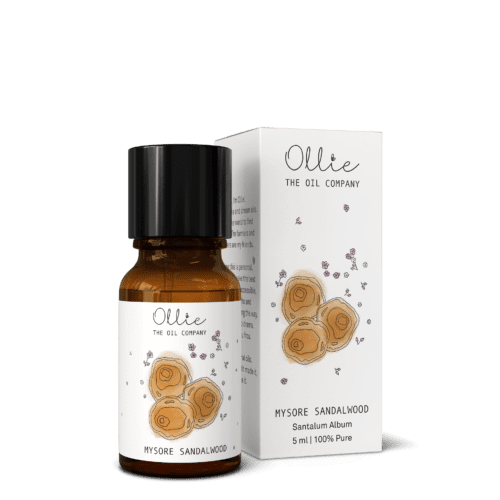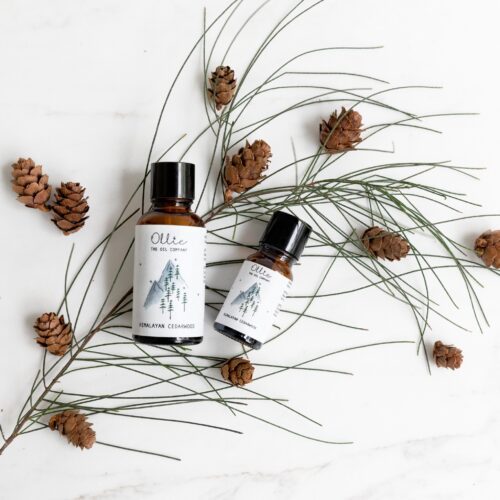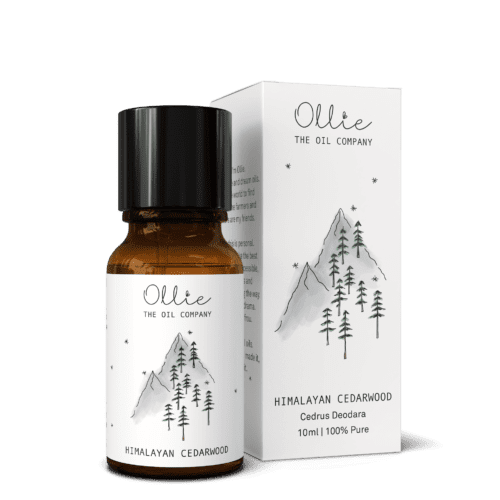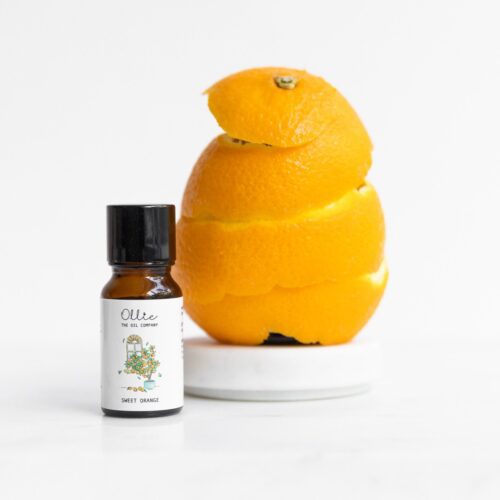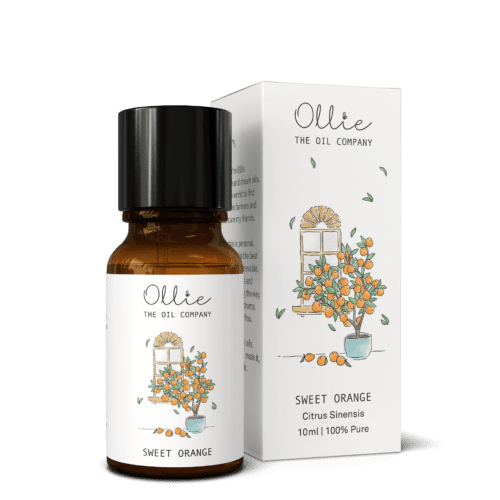The essential facts
- Has a warm, spicy, woody aroma
- Is often used in food (in non-oil form) for that extra oomph!
- Oil from Ceylon is the best, purest variety
- Has anti-inflammatory and immunity boosting properties – no more sniffles!
- Antibacterial – gets rid of the nasty stuff
- Is known for its warming effect
What is cinnamon essential oil?
Sugar, spice, and all things nice.
That’s how I describe my Ceylon cinnamon bark oil.
Its warm, spicy, woody aroma brings forth memories of warmth, coziness, and deliciously spiced food. Have you ever smelt cinnamon and instantly been reminded of an exotic oriental market, lush greenery, and delicious food? Cinnamon has been associated with the East for a long time. It is a wonderful addition to any food. The best part is, cinnamon is not only tasty, it’s extremely healthy too!
Cinnamon oil is the concentrated and purified form of cinnamon bark’s healthful goodness. It is extracted from the inner bark of the Cinnamon zeylanicum tree which grows natively in Sri Lanka. I extract it by steam distillation to ensure that I get the purest cinnamon essential oil.
My Ceylon cinnamon bark oil is packed with health-boosting properties that you absolutely will love to have. If you’re someone who loves to pamper yourself with a multipurpose essential oil like this, buy your own bottle of Ollie’s Ceylon Cinnamon Bark Oil from our online store now!
How to choose the best cinnamon essential oil?
Not all cinnamon oils are created equal.
Ceylon cinnamon oil is a superior variety of cinnamon essential oil because it does not contain coumarin (which harms your liver and kidneys). Ceylon cinnamon or true Cinnamon has a richer aroma and can be used daily without experiencing any harmful effects (unless you take more than the recommended dosage).
Buying your essential oil from reputed and honest brands is very important. I, Ollie, can guarantee you are getting 100% pure Ceylon Cinnamon Oil straight from the cinnamon groves of Sri Lanka because I have personally sourced the oil myself! All my products are constantly tested using stringent quality controls to give you the best and purest essential oils. You can rest assured that every bottle of essential oil that you buy from my store will be the best quality essential oil you have ever experienced!
Unfortunately, many unscrupulous sellers of cinnamon oil tend to mix lower quality oils to cut costs or add synthetic fragrances and market the product as Ceylon cinnamon oil. This is downright dangerous and unethical. Remember, if the price feels too good to be true, then you’re better off staying safe.
If you have any more questions about my Ceylon Cinnamon Bark Oil, get in touch with me. I am more than happy to discuss how you can use it in your daily life!
Cassia oil or Ceylon cinnamon oil: what’s the difference?
If you have ever googled about cinnamon oil, you would have come across articles and links for cassia oil. If you are wondering what the difference between cassia oil and ceylon cinnamon oil is, you have come to the right place. I am going to break down the differences between these two closely related oils.
So for a quick overview:
Cassia Oil
- Extracted from the bark of the Cassia tree
- Stronger spicier flavour
- Considered to be lower quality due to the higher levels of coumarin
- Majority of cinnamon at the supermarket is cassia cinnamon
Ceylon Cinnamon oil
- Extracted from the bark of the Ceylon Cinnamon Tree
- Known as True Cinnamon
- Sweet, warm flavour
- Highest quality cinnamon, so more expensive, also relatively harder to find.
These oils are extracted from different trees and even though both Ceylon cinnamon oil and cassia oil have similar health benefits, they have one big difference – Coumarin.
Cassia oil contains a substance called coumarin in very high levels. This is extremely toxic and causes liver & kidney damage when it is used for a long time. Just 1-2 tablespoons of cassia oil can have dangerous levels of coumarin. If you are using cassia oil for a long time, you need to be very careful about liver or kidney damage.
Ceylon cinnamon oil has very low levels of coumarin – low enough to be considered acceptable/safe.. It is safer to use Ceylon cinnamon oil if you are going to use cinnamon oils regularly. Although Ceylon cinnamon oil is more expensive, it is of better quality and safer for your body. Ceylon cinnamon oil can be used daily, whereas cassia cinnamon oil should not be used more than once a week.
Cassia oil is often passed off as cinnamon oil, incorrectly so. I hope my explanation on why this is wrong is sufficient for you to make an informed decision!
What is cinnamon essential oil used for?
Ollie’s Ceylon cinnamon oil is one of my more versatile oils. It blends well with many of my other essential oils. Not only that, it offers such a wonderful range of health and general use benefits that you’ll be glad you bought a bottle of my Ceylon Cinnamon Oil!
Did you know? Cinnamon was once thought to be more valuable than gold?
The benefits of cinnamon oil
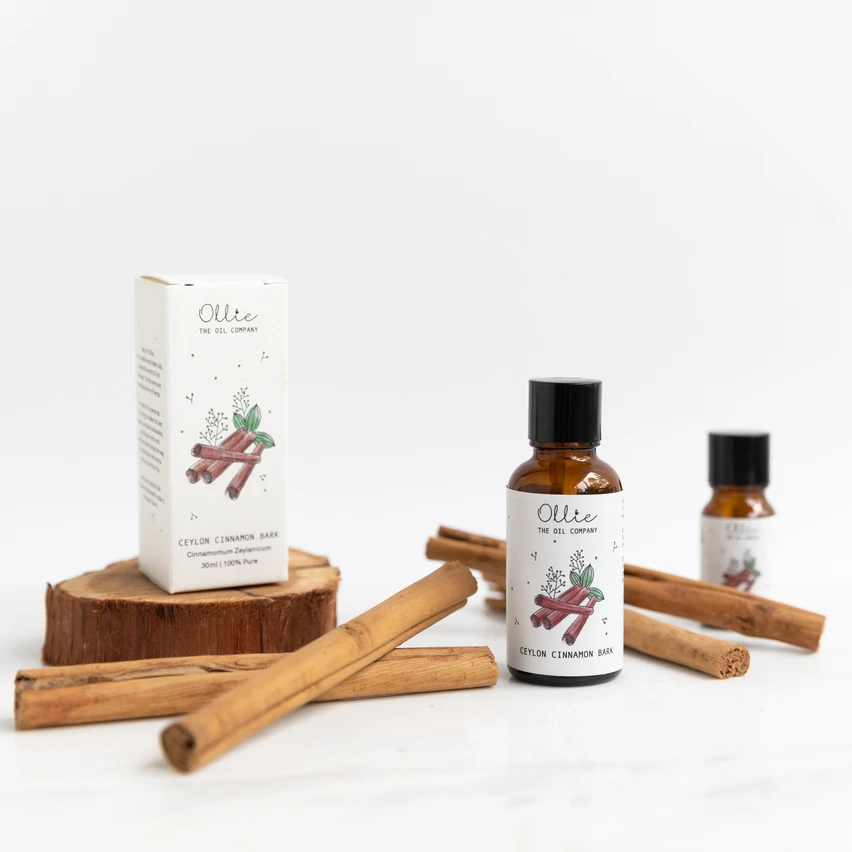
So what can cinnamon oil do for you? I have compiled this brief list of uses for cinnamon oil below.
Promotes heart health
- 1 out of 3 deaths in Singapore are due to cardiovascular diseases.
- Cardiovascular diseases like heart disease, stroke, and high blood pressure reduce quality of life and are expensive to treat.
Many people suffer from cardiovascular diseases. Whether it is because of hereditary reasons or poor lifestyle choices, heart disease is a leading cause of death or disability in Singapore. You can reduce your risk of developing heart disease by incorporating cinnamon oil into your daily life alongside maintaining a healthy diet & leading an active lifestyle.
Cinnamon Oil has been found to combat oxidative stress, which is caused by free radicals in the body. Oxidative stress has been strongly linked to causing cardiovascular diseases and increasing the risk of blood clots.
Compounds called cinnamaldehyde and eugenol in cinnamon oil are responsible for its heart protecting benefits.
Diabetes Treatment
- Singapore has the world’s highest levels of diabetes. Nearly half a million people here suffer from diabetes.
- The most prevalent form of diabetes in Singapore is type 2 or insulin resistance diabetes.
Untreated diabetes can cause severe healthcare complications such as kidney failure, muscle death, nerve damages, and lowered immune system function.
Cinnamon oil has been shown to regulate blood glucose levels, reducing glucose spikes that are common in diabetic patients, and improves function of the insulin producing cells in the pancreas.
In ayurvedic treatments in South India, cinnamon was often prescribed for those who suffered from type 2 diabetes. It has been known from ancient times that cinnamon helps regulate blood sugar levels.
You can use cinnamon with your regular diabetes medication. But be sure to discuss with your doctor first!
Natural flu remedy
Flu season is a real downer every year. It can put you out of commission for several weeks and leave you physically depleted.
Cinnamon oil has a compound called eugenol which has powerful antimicrobial properties. Cinnamon oil will get rid of bacterial, viral, and fungal infections in a jiffy! Its healing properties will also help you recover from the flu much faster. Regular use of cinnamon oil may even prevent you from catching the flu!
Here’s an easy recipe to make an influenza busting mist that you can use often to boost your immunity. This will get rid of colds, nasal congestion, and sore throats.
- Add 4 drops of Ollie’s Ceylon Cinnamon Bark Oil to 100ml of water in a spray bottle. Shake well before use.
Use this spray mist on your clothes, on surfaces, and in any room you go to. It smells wonderful and will protect you from infections.

Ollie caution!
Cinnamon oil should never be used on the eyes or mucous membranes like the nose or throat as it can cause severe irritation. Should some get in your eye or nose, rinse with plenty of water and monitor yourself for any adverse symptoms. Also try not to handle the oil with your bare hands as it can cause mild burns. If you do, immediately wash your hands with soap and water.
Improves blood circulation
Inhaling cinnamon oil can stimulate blood flow and improve circulation. One of the biggest benefits of improved blood flow around the body is better mood, more energy, and lowered instances of depression. Cinnamon oil is also a natural aphrodisiac. Make a diffuser blend with 1 drop of Ollie’s Ceylon Cinnamon Bark Oil and 2 drops of Ollie’s Mysore Sandalwood Oil to improve libido and enhance relaxation.
Cinnamon oil can also promote faster healing of injuries thanks to its anti-inflammatory and immunity boosting properties.
The best part is, use two drops of cinnamon oil in your diffuser while exercising. Cinnamon oil improves metabolism helping you sustain your stamina during exercise and lose weight faster. Since it also increases blood flow to muscles, you will reduce the instances of muscle cramps post-exercise!
Treat stomach ulcers
- Stomach ulcers are a very common disease.
- They cause pain in the stomach, heartburn, gastric reflux, nausea, and poor digestion.
Peptic ulcers or stomach ulcers are caused by a bacterium called H. Pylori. This bacterium causes painful ulcers in the stomach. Ulcers are accompanied by stomach cramps, heartburn, gastritis, nausea, and poor digestion. Untreated stomach ulcers can develop into stomach cancer.
Cinnamon oil has been shown to be the most powerful essential oil that prevents growth of H. Pylori in the stomach.

Ollie caution!
I do not recommend using cinnamon oil straight up in your food or drinks. Instead, to treat stomach ulcers with cinnamon oil, mix 1 drop of cinnamon oil for every tablespoon of carrier oil (such as coconut oil) and massage onto your stomach. Do this 2-3 times a day.
What does cinnamon essential oil blend well with?
First step to blending essential oils: Buy a bottle from our online store!
Now that you have bought your own bottle of Ollie’s Ceylon Cinnamon Oil, are you curious about what other essential oils you can blend with?
Ceylon cinnamon has a warm, sweet & spicy scent. It blends well with many different essential oils and even enhances their benefits. Here’s some of my recommendations on how you can blend them in your diffuser.
- 3 drops of Ollie’s Ceylon Cinnamon Bark Oil + 2 drops of Ollie’s Somali Frankincense Oil: A very spiritual and invigorating scent. Use this to improve your focus, memory, and energy.
- Ollie’s Ceylon Cinnamon Bark Oil + Ollie’s Australian Tea Tree Oil: A cleansing and purifying blend. The powerful antimicrobial properties of tea tree oil and cinnamon oil will get rid of any germs in your house and also help you recover from infections faster.
- 2 drops of Ollie’s Ceylon Cinnamon Bark Oil + 3 drops of Ollie’s Lemon Oil: Deodorizing and destressing blend. Both cinnamon oil and lemon have air purifying and odour removing properties. Use this blend to make your own air freshener via your diffuser.
Cinnamon oil’s warm spicy scent makes it a great addition to other essential oil blends. Just mix and match around to see what works best for you and which scents you like. As with any essential oil, if you are using cinnamon oil alone or with any blends on your body, always remember to dilute with a carrier oil.
Ceylon cinnamon oil recipes
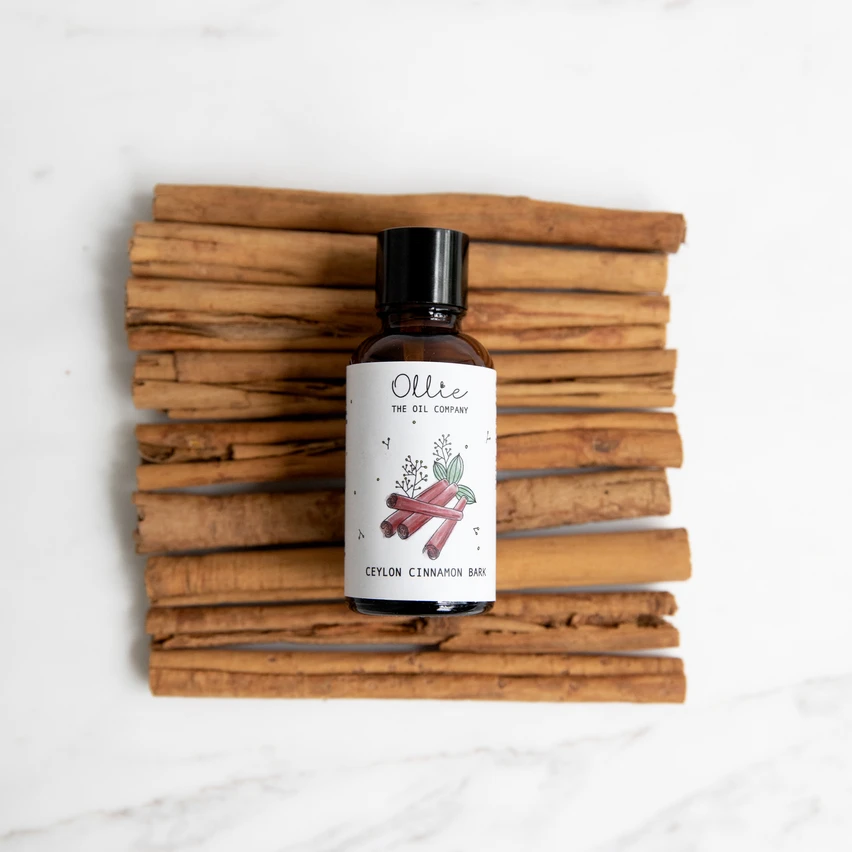
Cinnamon oil is a health boosting oil and you can use it in many products. Try these recipes with your own bottle today!
Immunity booster blend
The combination of essential oils in this diffuser blend will keep you protected against infections and illnesses. This blend is a combination of antimicrobial essential oils and immunity-boosting essential oils.
Ingredients:
- 3 drops of Ollie’s Ceylon Cinnamon Bark Oil
- 2 drops of clove bud oil
- 1 drop of Ollie’s Lemon Oil
- 2 drops of Ollie’s Australian Tea Tree Oil
- 1 drop of Ollie’s Himalayan Lavender Oil
Method:
- Mix all the essential oils together and diffuse in your room.
- Use this no more than twice a week for best results.
Throat lozenges with essential oil
Cinnamon oil has infection-fighting properties. Its antimicrobial properties and warming effect will get rid of sore throats in a jiffy. These easy to make, DIY sore throat lozenges are free from nasty chemicals and preservatives that are found in commercial brand throat lozenges. This is safe to use on children but just be careful of choking.
Ingredients:
- ½ cup organic coconut oil
- ½ cup raw honey
- 4 drops ginger essential oil
- 3 drops Ollie’s Ceylon Cinnamon Bark Oil
- 5 drops Ollie’s Lemon Oil
- 4 drops Ollie’s Somali Frankincense Oil
- Silicone candy moulds (optional)
Method:
- Put the coconut oil in a bowl and whip until the oil is fluffy and soft.
- Add the raw honey to the coconut oil and mix until it is thoroughly combined.
- Add the essential oils and combine thoroughly.
- Spoon the mixture into silicone moulds. If you don’t have silicone moulds, that’s fine. Just add dollops of the mixture on wax paper in a line.
- Keep the silicone moulds or wax paper containing the lozenge mixture in the freezer.
- Freeze until hard.
- Remove the candy from their moulds or wax paper and store in an airtight container.
- Keep it in the freezer or refrigerator.
- Use as needed.
Although the steps look complicated, these lozenges are really easy to make and last several months. The best things about them are:
- No refined sugar
- Entirely organic
- No artificial preservatives or flavourings.
All-natural goodness!
Note: Do not consume more than 3 lozenges a day.
Homemade Toothpaste with cinnamon oil
Cinnamon oil is a popular addition to toothpastes. Its sweet scent and antimicrobial property makes it a fine addition to homemade toothpaste. The best part is, making your own toothpaste ensures that you are not putting harmful chemicals into your mouth.
I’m all about sustainability and environmentally-friendly practices. Making your own toothpaste is one great way to reduce the amount of plastic waste that you produce and also reduce your consumer impact.
Ingredients:
- ½ Cup organic cold pressed coconut oil
- 2 tablespoons baking soda
- 3 drops of Ollie’s Ceylon Cinnamon Bark Oil
- 3 drops of Ollie’s Peppermint Oil
- 1 tablespoon of xylitol (optional)
- Tinted glass container
Method:
- Crush the xylitol into a very fine powder and keep aside (optional step).
- Over a double boiler, melt your coconut oil. Once melted transfer the oil to your tinted glass jar.
- Add in the baking soda to the coconut oil and stir well.
- If you are using xylitol in your toothpaste, add the xylitol into the coconut oil and stir until it dissolves.
- Lastly, add the essential oils to the coconut oil mixture and stir thoroughly until everything is mixed.
- Refrigerate the mixture until it is semi-solid, and then give it a good stir again. Keep the toothpaste in a cool dry place.
Note: Xylitol is a natural sweetener and makes your toothpaste taste sweeter. It also has some bacteria-killing properties and makes your breath smell better by countering acid in the mouth. You can skip this if you do not want any sweetener in your toothpaste.
The Takeaway
Cinnamon oil is a powerful health oil. Its potent antimicrobial property makes it ideal for treating colds, coughs, and mild infections. Instead of pumping yourself with antibiotics at the slightest sniffle, try adding a drop of cinnamon oil to your tea or using one of our recipes above.
Cinnamon oil also has great blood sugar lowering capabilities, so try adding some cinnamon oil into your diet if you have diabetes. Of course, as with any over-the-counter medicine, always remember to seek your doctor’s advice before using cinnamon oil to control your diabetes.
With its warm, exotic scent, cinnamon oil will also help your home smell more inviting. Have you ever smelt a cinnamon roll and felt instantly comforted? Imagine your entire home smelling like that. Try using cinnamon oil to make a simple air freshener!
You see, there is just so much you can do with this amazing oil. It is a gift straight from mama Earth. Get your bottle from our online store now!
Share your experience with me on social media! Tag me @ollie_oils on Instagram and @itsollie.oils on Facebook. Take care of yourself and stay cinnamony sweet!
Once you’re done mastering this oil, why not try out the rest of amazing oils we have? Shop now!
Have an Ollie good day!






